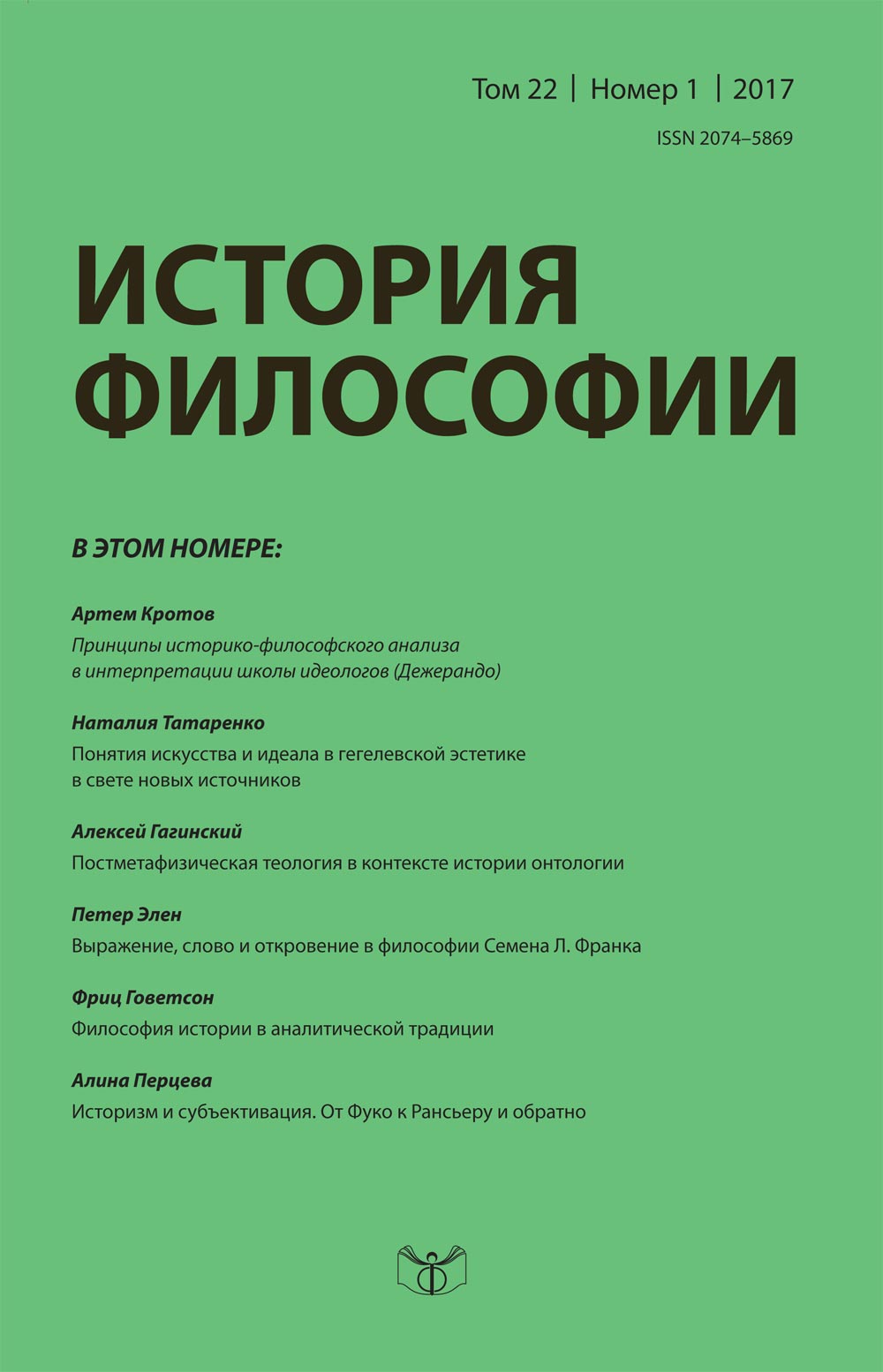Post-metaphysical Theology in the Context of the History of Ontology
Keywords:
history of ontology, post-metaphysical theology, onto-theology, being, God, givenness, J.-L. Marion, phenomenologyAbstract
The article deals with analytics and critics of post-metaphysical theology. Therefore it has two goals:
a theoretical goal – to question some theses of post-metaphysical theology, and a methodological
one – to show the inner logic of this phenomenon, putting it in the context of the history of ontology.
Based on this methodology, the author summarizes the key milestones of European ontology, and
against this background examines the post-metaphysical theology and phenomenology of givenness.
In particular, the article shows that starting from the works of John Duns Scotus being is understood
as a natural phenomenon, which means a fundamental separation of ontology from theology. In
sum, ontology is something external to theology. Kant makes the first step towards the complete
elimination of ontology from the theological discourse, but only M. Heidegger made the final step
in this direction. Based on his philosophy and, in particular, his understanding of metaphysics as
onto-theology, which prevents access to the divine, J.-L. Marion develops the phenomenology of
givenness, justifying his own theological project, presented in «God without being». Nevertheless,
the philosophy of J.-L. Marion is a new version of ontological relativism, which raises the question
of whether the project is suitable for theology.

